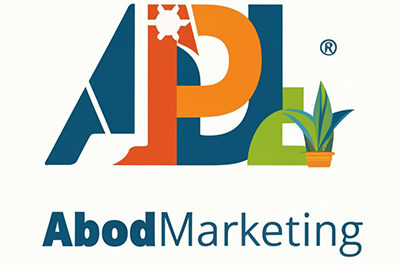marketing 4.0
Marketing 4.0: The Future of Marketing in the Digital Age
Marketing has come a long way from the traditional methods of advertising in print and television. With the advent of technology, the way businesses market their products and services has transformed entirely. Marketing 4.0 is the latest paradigm shift in the world of marketing, representing a new era of customer engagement in the digital age.
What is Marketing 4.0?
Marketing 4.0 is a marketing approach that leverages digital technology to engage customers in a meaningful way. It is a customer-centric approach that puts the customer at the center of marketing activities. Marketing 4.0 is all about building a relationship with customers, providing them with personalized experiences, and delivering value that goes beyond just the product or service.
The Four Ps of Marketing 4.0
Marketing 4.0 is based on the four Ps: People, Participation, Personalization, and Peer-to-Peer. These four Ps are the foundation of marketing 4.0 and help businesses create a more customer-centric approach to marketing.
People
People are at the heart of marketing 4.0. It is no longer enough to target a broad audience. Instead, businesses must focus on building relationships with individuals. By understanding their needs, preferences, and behaviors, businesses can create personalized experiences that resonate with their customers.
Participation
Marketing 4.0 is all about participation. Customers want to be engaged and involved in the marketing process. Businesses must create opportunities for customers to participate in the marketing process, whether it be through social media, online communities, or events.
Personalization
Personalization is key in marketing 4.0. Customers expect personalized experiences that cater to their specific needs and preferences. By leveraging customer data, businesses can create personalized experiences that deliver value beyond just the product or service.
Peer-to-Peer
Peer-to-peer marketing is a crucial component of marketing 4.0. Customers trust their peers more than they trust brands. By leveraging customer advocacy, businesses can create a network of loyal customers who advocate for their brand and influence others to make a purchase.
The Benefits of Marketing 4.0
Marketing 4.0 offers many benefits to businesses that adopt this approach. Here are a few of the benefits of marketing 4.0:
- Increased customer engagement
- Improved customer loyalty
- Higher customer retention rates
- Increased customer lifetime value
- Better understanding of customer needs and preferences
The Challenges of Marketing 4.0
Marketing 4.0 is not without its challenges. Here are a few of the challenges that businesses may face when adopting this approach:
- Data privacy concerns
- Difficulty in measuring ROI
- Lack of skilled personnel
- Integration with existing marketing strategies
How to Implement Marketing 4.0
Implementing marketing 4.0 requires a customer-centric mindset and a willingness to adapt to new technology. Here are a few steps businesses can take to implement marketing 4.0:
- Build a customer-centric culture
- Collect and analyze customer data
- Leverage digital technology
- Create personalized experiences
- Encourage customer participation
- Foster customer advocacy
Conclusion
Marketing 4.0 represents a new era of marketing in the digital age. By putting the customer at the center of marketing activities, businesses can create personalized experiences that deliver value beyond just the product or service. While there are challenges to adopting this approach, the benefits are significant. By implementing marketing 4.0, businesses can create a more engaging, loyal, and profitable customer base.
FAQs
- What is the difference between marketing 4.0 and traditional marketing?
Marketing 4.0 is customer-centric, while traditional marketing is product-centric. Marketing 4. Marketing 4.0 is all about creating an emotional connection with customers. It’s about understanding their needs, desires, and aspirations and creating personalized experiences that cater to those emotions. By doing so, businesses can create a bond with their customers that goes beyond just the transactional relationship.
- How does marketing 4.0 differ from previous marketing paradigms?
Marketing 4.0 represents a significant shift from previous marketing paradigms. It leverages digital technology to create personalized experiences that cater to the customer’s needs and preferences. It’s a customer-centric approach that puts the customer at the center of marketing activities, rather than the product or service.
- What are some of the challenges businesses may face when implementing marketing 4.0?
Businesses may face challenges such as data privacy concerns, difficulty in measuring ROI, lack of skilled personnel, and integration with existing marketing strategies. However, with the right mindset and willingness to adapt, these challenges can be overcome.
- How can businesses implement marketing 4.0?
Businesses can implement marketing 4.0 by building a customer-centric culture, collecting and analyzing customer data, leveraging digital technology, creating personalized experiences, encouraging customer participation, and fostering customer advocacy.
- What are the benefits of marketing 4.0 for businesses?
Marketing 4.0 offers many benefits for businesses, including increased customer engagement, improved customer loyalty, higher customer retention rates, increased customer lifetime value, and better understanding of customer needs and preferences.
In conclusion, marketing 4.0 is the future of marketing in the digital age. By putting the customer at the center of marketing activities and creating personalized experiences that cater to their emotions, businesses can create a bond with their customers that goes beyond just the transactional relationship. By implementing marketing 4.0, businesses can create a more engaging, loyal, and profitable customer base.


